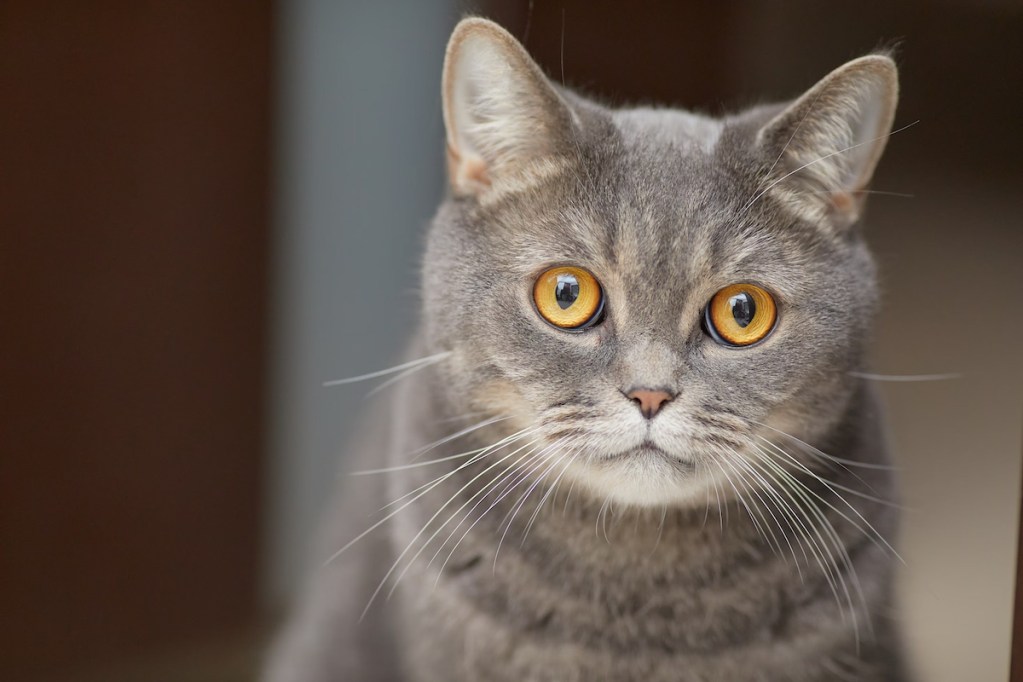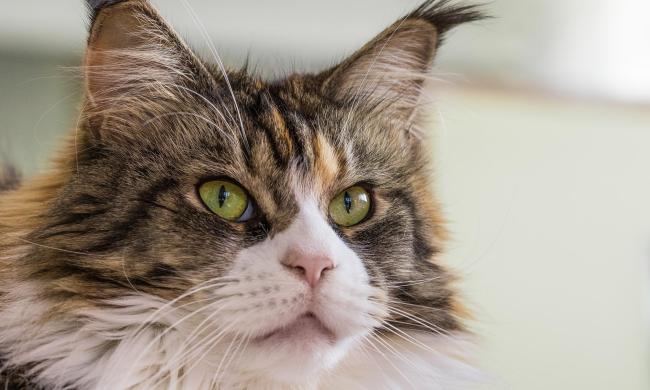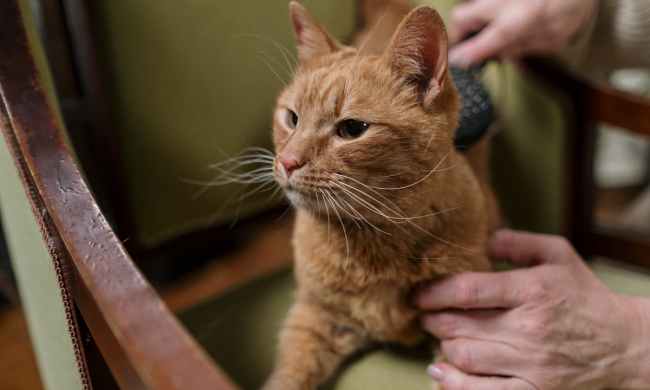
When something goes bump in the night, you might wake up in a panic, only to realize it’s just the cat. These beasties are well known for being up and about in the wee hours of the morning, ready to play, hunt, and eat. While it’s true that cats love nighttime, they aren’t actually nocturnal. Instead, they exist in an in-between state as crepuscular, meaning your feline will love dusk and dawn most. So, if they aren’t actually night owls, can cats see in the dark? We break down what cat vision really looks like.
Can cats see in the dark?

Almost all of us can see something in the dark, but night vision varies considerably among different animals. Owls have particularly good night vision, while humans less so. Cats see about six times better than people at night, which helps them hunt successfully at twilight, in the wild, or from your backyard. But it’s inaccurate to say they can see in pure darkness. Instead, kitties have special eyes that allow them to observe a lot more in low light. These are the three main ways cats see better at night.
Smart design
Cat eyes look totally different from human ones, and they are. Feline orbs have special qualities designed to help them hunt in near darkness, such as a curved cornea and large lens (we’ll get into what’s up with the pupils next). You may have heard of rods and cones, the parts of the eye that help us see light and color, among other things. Our furry friends have more rods and so see more light, and therefore, need less of it (by contrast, we have more cones and observe more colors). Lastly, cats have something called a tapetum that reflects light to the retina. While you may never have heard this term, you’ve definitely witnessed it in action — this is why cat eyes glow in the dark.
Pupil dilation
When the lights go off, our pupils get bigger, and it’s the same with cats. However, our pet’s pupils can go from a small vertical slit to a massive globe. As the eye grows larger, it does lose some clarity, otherwise you might expect to find your animal’s eyes constantly at full blast. Generally, during the day, their pupils will show up as a thin line for maximum focus and then dilate as needed in dim-light situations. And the growth is an enormous difference, up to 300 times the size of their eye at its smallest.
Myopia
Myopia is the fancy word for near-sightedness or the ability to see up close but not far away. Many humans wear glasses to improve their vision, but unfortunately, cats don’t ever see as well as we do at a distance. The little buds have a wider frame of vision, but everything would look a bit blurry if you adopted their eyes temporarily. In a competition for who can spot a tiny movement, like prey burrowing in the grass, the cat would win.
How cats see the world around us

Still curious about what it’s really like to live in the world like a cat? Check out these incredible images from Nickolay Lamm that capture something similar to what kitties actually see when they gaze upon the landscapes around them. You’ll instantly notice that the cityscape and faraway hills look blurry, while the nighttime images have way more detail than your retinas could ever hope to capture. You can also watch your pet in action, which might help you glean what they’re eyeing, perhaps a ray of light or small motion barely perceptible to your own eyeballs.
While cats don’t exactly have super-pet night vision, they can absolutely see in dim light better than we can, largely because the shape of the eye as a whole and the pupil is different from ours. That comes with a few distinct drawbacks, though, namely fewer and less saturated colors and an inability to see anything clearly beyond a certain distance.
In your cat’s life, that will mean their eyes dart toward things you hardly notice, but they also won’t be able to spot the dog all the way down the block (whether they can hear and smell it, though, is another matter entirely). Ensure that you play to your cat’s strengths by using smelly or jingly toys, for example, so your pet has an easier time fetching. After dark, you should be the one who’s jealous of your animal’s ability to see clear as day the nightscape around you.



